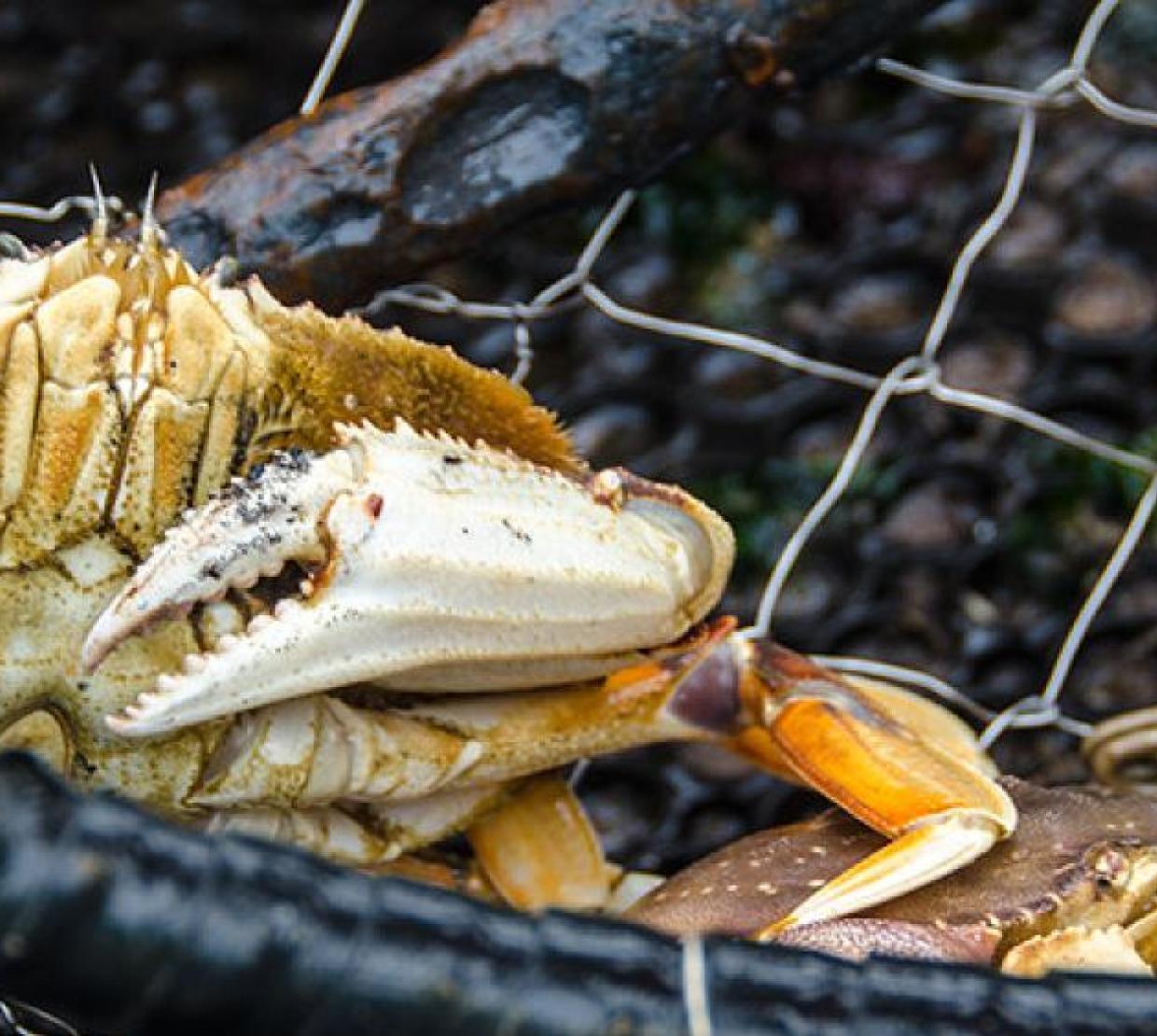The National Oceanic and Atmospheric Administration has awarded Oregon State University and its research partners $4.2 million to investigate how multiple climate change-related stressors are impacting marine ecosystems off the coast of Oregon, Washington and Northern California.
The researchers will focus on two key species: Dungeness crab, which plays a significant economic and cultural role in Indigenous and other coastal communities and is considered the most valuable single-species fishery in Oregon; and krill, which are tiny crustaceans that play a critical role in the ocean’s food web and serve as a bellwether for ocean health.
Both species are facing threats from multiple stressors, including ocean acidification; low oxygen conditions, also known as hypoxia; marine heatwaves; increasing ocean temperatures; and harmful algal blooms.
The goal of the new project is to better understand the direct and indirect impacts of those stressors and help commercial fisheries and state and Tribal resource managers prepare for the changes ahead, said Francis Chan, the principal investigator. Chan is a marine ecologist and director of the Cooperative Institute for Marine Ecosystem and Resources Studies at OSU’s Hatfield Marine Science Center in Newport.
“We know that the climate is changing, and it is impacting our marine resources,” Chan said. “This work is all about how we can best position the Dungeness crab fishery to be more resilient to these changes. At the conclusion of this work, we hope to have answers to help fishermen and managers get to a climate-ready fishery.”
The work will focus on the northern California Current, the span of waters along the West Coast from Washington to Northern California, including NOAA’s Olympic Coast National Marine Sanctuary and longstanding Tribal fishing areas.
Researchers will use existing and new ocean data, ocean and climate models, laboratory experiments and fisheries management evaluation techniques to learn more about the relationships between the different stressors and the potential cascading impacts that may result.
“We are connecting the dots on key pieces of innovative ocean research, including observations from undersea autonomous vehicles, AI-driven analytics of ocean food webs and state-of-the-art climate models,” said Jack Barth, executive director of OSU’s Marine Studies Initiative and an oceanographer in the College of Earth, Ocean, and Atmospheric Sciences.
A key component of the project is the integration of Traditional Ecological Knowledge, which is the accumulation of Indigenous science, including information, practices and beliefs about relationships and environmental functions, including all elements, species and processes within ecosystems.
Siletz Tribal member and TEK specialist Samantha Chisholm Hatfield, an assistant research professor in the Department of Fisheries, Wildlife, and Conservation Sciences in OSU’s College of Agricultural Sciences, will lead that aspect of the project.
Read the full story here.




